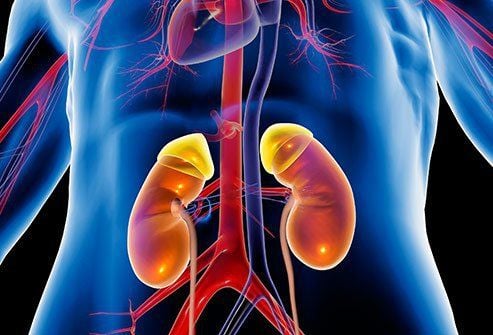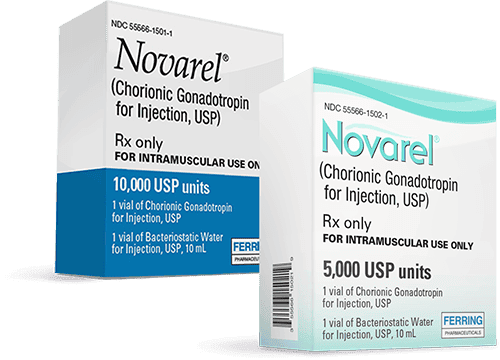This is an automatically translated article.
Men with kidney disease may experience reduced sperm count and difficulty fathering. As for women, if they have kidney problems, they can still get pregnant, depending on the severity of the effects of glomerulonephritis and kidney failure.
1. In men, does glomerulonephritis cause infertility?
1.1. Research results In fact, the effect of chronic glomerulonephritis on semen quality and cytokine levels in men's semen has not been determined. Therefore, one study collected 58 semen samples from both normal men and those with chronic glomerulonephritis for analysis.
Results of semen analysis showed that men with chronic glomerulonephritis were significantly inferior to normal people in the following indicators:
Semen volume; Semen pH; Sperm density; Rate of forward movement of sperm; Sperm activation rate; Sperm survival rate; Normal sperm morphology. In addition, the patient also increased the concentration of:
Nitrogen urea in the blood; Serum creatinine; Interleukin (IL)-17 and IL-18. In conclusion, chronic glomerulonephritis increased blood urea nitrogen and serum creatinine levels, causing abnormal expression of IL-17 and IL-18. At the same time, the disease also negatively affects the quality of men's semen and can lead to male infertility.
1.2. The paternity of men with kidney disease The urinary system and the genitourinary system are generally related. Oriental medicine often believes that people with physiological weakness are due to weak kidney disease. This is because the male urethra (penis) is responsible for both urine excretion and ejaculation during sex. So if the urinary system has problems, it can also affect the genitourinary system and vice versa.
Severe kidney disease (to the point of kidney failure) or the need for dialysis can affect a man's sperm count. Sperm stool studies of men undergoing dialysis showed a decreased sperm count and an increased percentage of inactive sperm.
However, after a successful kidney transplant, the sperm count usually increases. There have even been reports of patients becoming fathers after transplantation.

Bệnh thận nghiêm trọng có thể ảnh hưởng đến tinh trùng
1.3. Some tips People with glomerulonephritis, even though they have recovered, still need to be closely monitored, preferably urine and blood tests to evaluate kidney function every 6 months, helping to diagnose diseases of the system early. urinary. In addition, sex also needs to be regulated, because when the kidneys are damaged, the function is no longer as good as usual. The patient's sexual behavior is considered strenuous activity. Whether it is masturbation or sexual intercourse with ejaculation, all organs in the patient's body are highly stimulated. If abused, the patient will quickly get tired, making the disease progress more complicated.
People who recover from illness should stay healthy and focus on exercise. For example, swimming is a very good physical activity, the pressure of the water will affect the abdomen, pelvis and urinary system. You should keep a comfortable spirit with a reasonable working and studying regime, and getting enough rest. Avoid letting the body get inflammatory diseases, especially related to the nose and throat because the type of streptococcus causing sore throat is also the cause of glomerulonephritis and rheumatic heart disease.
In addition, some male patients may also have difficulty getting an erection. In this case, viagra is considered a possible treatment. This drug is used by many kidney transplant patients, but people with heart problems should consider it because it may not be safe.
2. In women, can glomerulonephritis give birth?
2.1. Effects of glomerulonephritis on fertility Puberty is often significantly delayed in boys and girls with chronic kidney disease. Women with kidney disease often have irregular menstrual periods, and if they progress to end-stage renal failure, they will become amenorrhoeic and infertile. In addition, during pregnancy, high blood pressure - a common complication in most people with glomerulonephritis, will increase the risk of preeclampsia. This is a serious condition in which blood pressure and/or protein in the urine rise suddenly. Preeclampsia requires immediate treatment and often requires immediate induction. This pregnancy complication is quite common in women with kidney disease or high blood pressure, lupus, as well as smokers.
Miscarriage is also more likely in women with high blood pressure and kidney disease. This condition may be the result of antiphospholipid antibodies, which increase the tendency of blood clots to form in veins and arteries.
The healthier a woman is when she conceives, the greater her chances of a successful pregnancy and childbirth. Pregnancy puts extra stress on kidney function, so kidney diseases can cause problems during pregnancy and can even lead to miscarriage. Experts recommend that, if possible, not get pregnant until kidney disease is completely under control, especially for lupus nephropathy.
2.2. Mild glomerulonephritis Mild kidney disease usually does not affect pregnancy. If a woman has normal kidney function, blood pressure, and blood urea, and has little or no protein in her urine, a perfectly healthy pregnancy can go on. Most likely, the patient can still become pregnant and the baby is usually born unaffected.
2.3. Severe glomerulonephritis In contrast, pregnant women need treatment to stabilize if there are enough symptoms to indicate that the disease has progressed to a severe stage, such as:
Albumin in the urine; Hypertension; Blood urea increased. Pregnant women also need to follow a suitable diet, such as eating light meals, and closely monitor the development of the fetus through regular antenatal visits.
2.4. Kidney failure Women who have advanced kidney failure or are on dialysis have less of a chance of having a successful pregnancy. People with acute kidney failure or after a kidney transplant can still get pregnant. However, chronic kidney disease and end-stage renal failure are associated with markedly reduced fetal survival.
In summary, the patient can get pregnant when the glomerulonephritis is mild. If you intend to have children, you need to have a pre-marital health check and re-evaluate the necessary indicators before becoming pregnant.
There are many problems related to the kidneys, so it is impossible to answer exactly whether men with glomerulonephritis are infertile or women with glomerulonephritis can have children. This will depend on the type of glomerulonephritis acquired, its severity, age as well as the individual health and medical conditions of each case. To get accurate information, patients should ask their specialist directly about the risk of infertility in people with glomerulonephritis and kidney failure.

Bệnh nhân chạy thận nhân tạo khó mang thai
Please dial HOTLINE for more information or register for an appointment HERE. Download MyVinmec app to make appointments faster and to manage your bookings easily.
References: ncbi.nlm.nih.gov, medscape.com, kidney.org.uk, webmd.comMORE:
Can treated kidney edema affect reproductive health? Male infertility: Causes, symptoms, diagnosis and treatment Glomerulonephritis: Causes, symptoms, diagnosis and treatment













